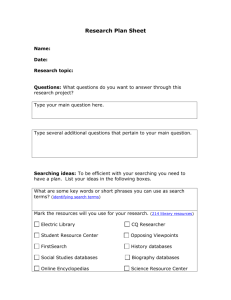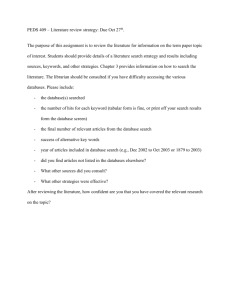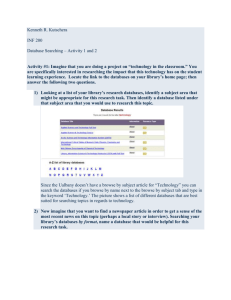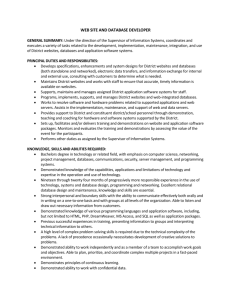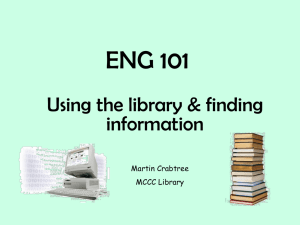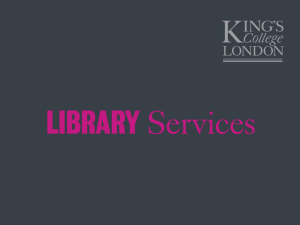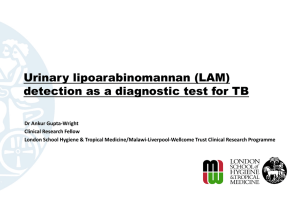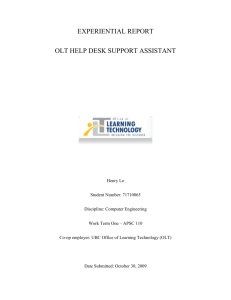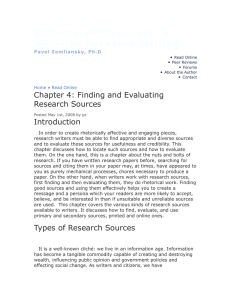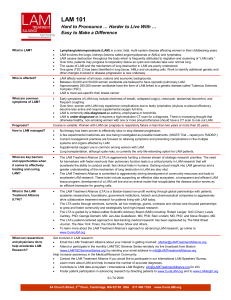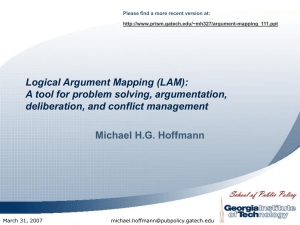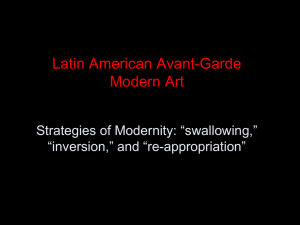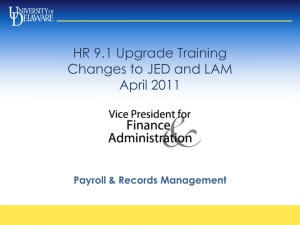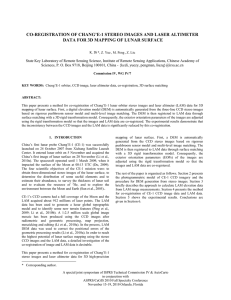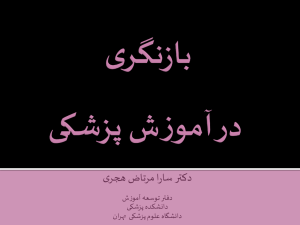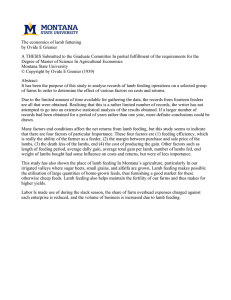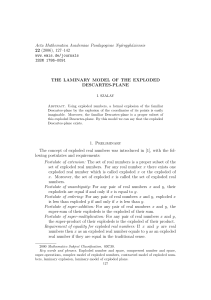ubc libr loan regs 9/02
advertisement
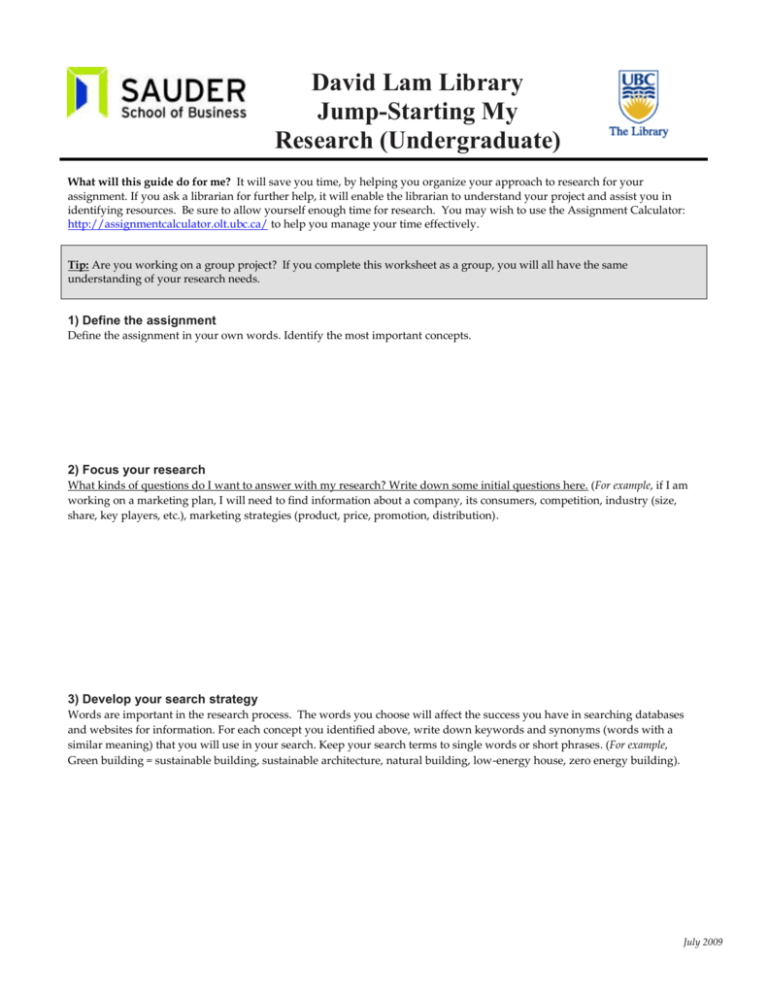
David Lam Library Jump-Starting My Research (Undergraduate) What will this guide do for me? It will save you time, by helping you organize your approach to research for your assignment. If you ask a librarian for further help, it will enable the librarian to understand your project and assist you in identifying resources. Be sure to allow yourself enough time for research. You may wish to use the Assignment Calculator: http://assignmentcalculator.olt.ubc.ca/ to help you manage your time effectively. Tip: Are you working on a group project? If you complete this worksheet as a group, you will all have the same understanding of your research needs. 1) Define the assignment Define the assignment in your own words. Identify the most important concepts. 2) Focus your research What kinds of questions do I want to answer with my research? Write down some initial questions here. (For example, if I am working on a marketing plan, I will need to find information about a company, its consumers, competition, industry (size, share, key players, etc.), marketing strategies (product, price, promotion, distribution). 3) Develop your search strategy Words are important in the research process. The words you choose will affect the success you have in searching databases and websites for information. For each concept you identified above, write down keywords and synonyms (words with a similar meaning) that you will use in your search. Keep your search terms to single words or short phrases. (For example, Green building = sustainable building, sustainable architecture, natural building, low-energy house, zero energy building). July 2009 4) Define your scope What parameters do I need to think about in planning my research? (For example: Am I focusing on a particular geographic area? Or a particular group of consumers? Do I need current statistics? What date range is acceptable?) 5) Identify alternatives What will I do if the information I want is not available in the exact form I need? What else will do? The following examples are for illustrative purposes only – be sure to make and communicate sound assumptions for your own research. If you are not sure how to proceed, check with your instructor for more guidance. Could I look at a broader geographic area? (For example: Vancouver to Canada) Could I look at a broader industry? (For example wine to alcohol) Could I look at a broader consumer group? (UBC students to college students in general) Could I use slightly older information? 6) Begin to look Once you have completed this form, please visit the David Lam Library website http://www.library.ubc.ca/lam to view our online research guides and to access our business databases. Our online research guides are starting points which identify relevant library databases and websites for you to search. Use the search words you identified. Librarians are available to provide further help with identifying resources and searching them effectively. Tip: You learn a lot from the research process itself, meaning you may get more ideas for search words and research questions as you are doing your search. Be open to new questions and search words as you are searching databases and websites. July 2009
